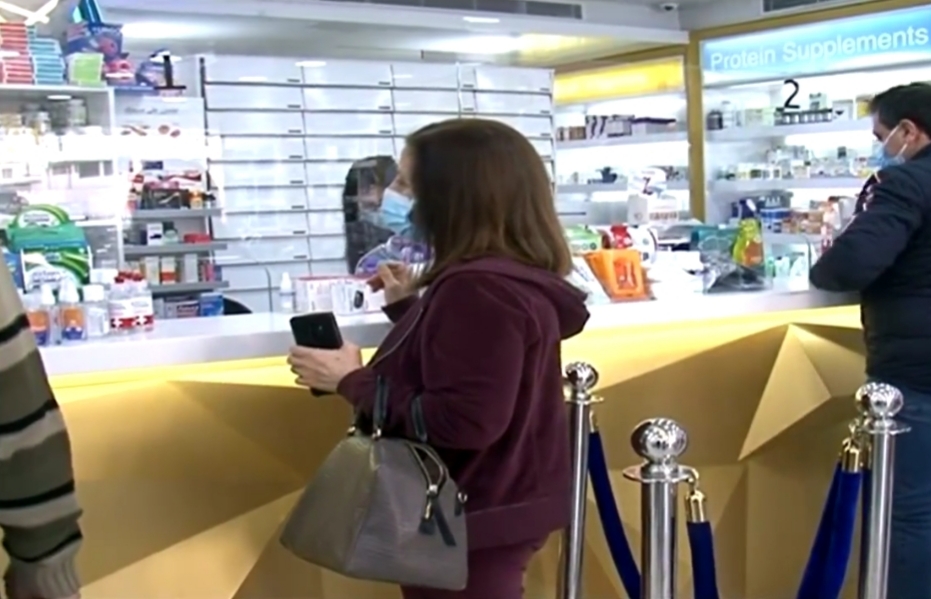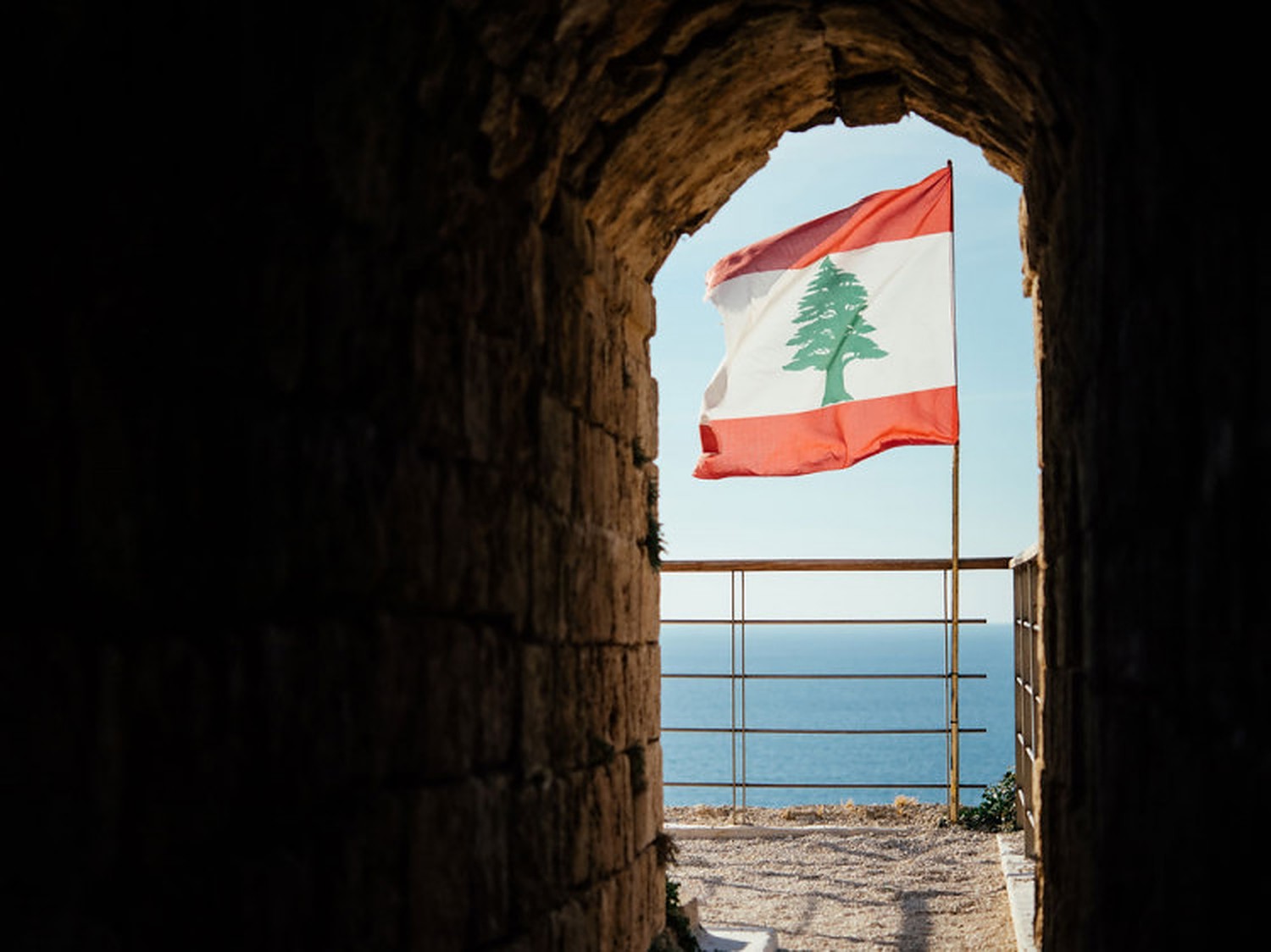by reuters — BEIRUT: The European Union is deeply concerned at the rapid deterioration of the crisis in Lebanon, its ambassador to …

by armenianweekly.com -- Tsoler Aghjian -- It was only a couple of years ago when my career as a pharmacist wasn’t of major importance to the Lebanese people. I was seen as an employee in a community pharmacy dispensing prescribed drugs and recommending some over-the-counter drugs to treat minor illnesses. However, after almost two years of tragedies that undermined the economy of this tiny Mediterranean country, things have changed radically. I am now the acquaintance that people rely on to make the needed drug available despite the overwhelming shortage in supply.
Since the October 2019 revolution in Lebanon, the hidden failures of 30-year-old corrupt economic policies have become gradually tangible. The Lebanese lira started to lose its worth against the US dollar in the black market, and it is now worth 13 times less. These dramatic changes in the economy took their toll on the health sector as well, leaving the drug importing companies desperate to find foreign currency to be able to buy the stock demanded by the Lebanese market. To overcome the currency issue in the drug supply, the government had adopted a subsidy policy which obliges the Central Bank to provide the drug importers with the foreign currencies from the national savings at the official low rate so that the drugs can be categorized as “supported” products and sold to the people at their original low prices. However, this solution was never a sustainable one. The drug prices remained unchanged for a year or so, but now that the Central Bank’s resources are depleted, drugs can no longer be sold at low prices.

By MENASource Paul Gadalla --- In his latest speech on August 15, Hassan Nasrallah, the leader of Lebanese militant group Hezbollah, declared that his country is already “amid the collapse.” And, indeed, he might very well be right. Lebanon has fully lifted fuel subsidies, plunging many homes into darkness as many of the country’s residents rely on diesel generators to power their homes. Hospitals are struggling to keep the lights on while flour mills cease operation, spurring fears of a bread shortage. Pharmacies can barely stock medicines while the COVID-19 pandemic continues. One would think that such a bleak situation would push Lebanese politicians into forming a technocratic government capable of at least passing some reforms to save the country from the brink of collapse. But therein lies the problem: any reforms would rob Lebanon’s sectarian oligarchs of their power. Thus, Lebanese politicians are allowing for Lebanon’s collapse while hoping for as much international aid as possible with as little strings attached.
Since the end of the Lebanese civil war in 1990, there have been large international conferences to help bail out the country from its chronic economic problems. After fifteen years of civil war and conflicts with Israel, this was done in the hopes of keeping Lebanon together, as no one wished to see the country become a regional arena of strife again. In a report published in February by the London School of Economics, it is estimated that the $170 billion in financial assistance given to Lebanon by its various supporters since the end of its fifteen-year civil war is greater than the amount of aid given to countries under the Marshall Plan (adjusted for inflation). Yet, thanks to corruption, much of this money was misspent or stolen, leaving Lebanon heavily indebted and still with poor infrastructure. Even money meant for Syrian and Palestinian refugees in Lebanon has been misappropriated.
Khazen History


Historical Feature:
Churches and Monasteries of the Khazen family

St. Anthony of Padua Church in Ballouneh
Mar Abda Church in Bakaatit Kanaan
Saint Michael Church in Bkaatouta
Saint Therese Church in Qolayaat
Saint Simeon Stylites (مار سمعان العامودي) Church In Ajaltoun
Virgin Mary Church (سيدة المعونات) in Sheilé
Assumption of Mary Church in Ballouneh
1 - The sword of the Maronite Prince
2 - LES KHAZEN CONSULS DE FRANCE
3 - LES MARONITES & LES KHAZEN
4 - LES MAAN & LES KHAZEN
5 - ORIGINE DE LA FAMILLE
Population Movements to Keserwan - The Khazens and The Maans
ما جاء عن الثورة في المقاطعة الكسروانية
ثورة أهالي كسروان على المشايخ الخوازنة وأسبابها
Origins of the "Prince of Maronite" Title
Growing diversity: the Khazin sheiks and the clergy in the first decades of the 18th century
Historical Members:
Barbar Beik El Khazen [English]
Patriach Toubia Kaiss El Khazen(Biography & Life Part1 Part2) (Arabic)
Patriach Youssef Dargham El Khazen (Cont'd)
Cheikh Bishara Jafal El Khazen
Patriarch Youssef Raji El Khazen
The Martyrs Cheikh Philippe & Cheikh Farid El Khazen
Cheikh Nawfal El Khazen (Consul De France)
Cheikh Hossun El Khazen (Consul De France)
Cheikh Abou-Nawfal El Khazen (Consul De France)
Cheikh Francis Abee Nader & his son Yousef
Cheikh Abou-Kanso El Khazen (Consul De France)
Cheikh Abou Nader El Khazen
Cheikh Chafic El Khazen
Cheikh Keserwan El Khazen
Cheikh Serhal El Khazen [English]
Cheikh Rafiq El Khazen [English]
Cheikh Hanna El Khazen
Cheikha Arzi El Khazen
Marie El Khazen